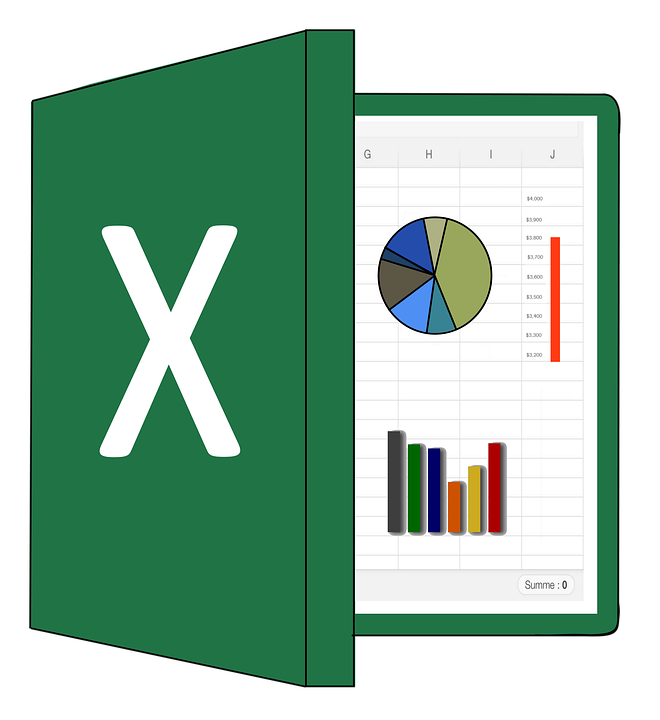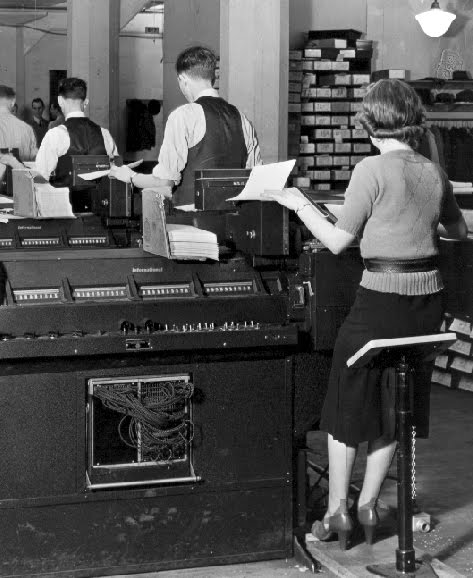Should You Do Your Own Small Business Accounting?
Any potential startup or business owner knows (or finds out quickly) that starting a business can be overwhelming once you discover the many different facets that are involved . Consequently we tend to focus on what is immediately important while we let some of the more technical aspects of our business be deferred until we can no longer avoid them . One of these often overlooked aspects of business is accounting, which arguably (although I’m a bit biased) is one of the most important parts of running a business as a good accounting system will let you know if you are financial viable. While many business owners can cobble together a sense of their financial situation through (as a former boss of mine used to say)” back of the envelope” calculations and reviewing their bank balances, there is still a need for an accounting system which at its core can validate your calculations and provide you with data to ensure that your business is going in the right direction.
Setting up an accounting system can, however, be intimidating for many startup business owners. Accounting can be technical and requires an understanding of certain terminology to be most effective. Prior to technology, business owners would either have to outsource their accounting or hire a team to take care of various entries and ledgers and consolidations. These days however, there are a number of software and apps that can significantly simplify the process and allow any business owner that has a genuine interest in understanding their own data to do it themselves. Answering the following questions can help you determine whether it makes sense to do it yourself:
1. Are you a new(ish) business?
Probably the best time to set up your own accounting is when you are a startup or new(ish) business owner. This is because you likely don’t have that many transactions and you might have some time on your hands while waiting to build up your business. Additionally your requirements are much simpler in the early stages than when your business starts to become more established and consequently more complicated.
2. Do you have a separate bank and credit card for your business?
One piece of advice that I give most business owners that are just starting up is to set up a separate bank account and credit card that are used mostly for business. There are many advantages to a separate business bank account, one of which is that accounting software such as Quickbooks, Xero and Wave accounting all allow you to download your transactions directly thereby reducing massive amounts of time (and tedium) on data entry
3. How many transactions do you have a month?
If you expect your startup to only have a small number of transactions, it might make sense to do your own accounting as these can be fairly easy to track with the right accounting software.
4. Do you prepare your own invoices for your clients?
If you send invoices to customers/clients yourself, then setting up an accounting system right from the outset makes a lot of sense as this is a significant part of the work. All accounting software has the functionality to create and send invoices (many of them also have time tracking). With most software you can email invoices to your customers from within the software and some even allow you to collect customer payments by clicking a link on the invoice. (this requires an initial setup with the software but once done can be a fairly seamless process). Payments collected directly are then posted and reconciled thereby saving time.
5. Do you want real time data?
For some businesses having access to real time data can significantly benefit their operations. For example if you sell handbags, you might need to track exactly what you have in stock at any given time and ideally you can depend on an accounting system to give you this information. If your operations are still relatively small, and you are already entering your own invoices, it is fairly easy to enter the other transactions to ensure you are up to date.
6. Do you need to assess your cash flow regularly?
Further to point 5, some businesses need to know exactly where they stand with respect to their cash flow at any given time. Review of your bank balance gives you a sense of this, however, it does not tell you how much you owe to vendors or how much you are owed from customers. Additionally you might loans or interest payments that are coming due or you might have other purchasing commitments that have to be met. If this is the case, you might want to consider doing your own accounting until your business is big enough to outsource or hire a bookkeeper.
7. Are you comfortable with technology?
Having some experience with general purpose software and/or cloud based apps is an important consideration when evaluating whether you should do your own accounting. If you haven’t used technology much, the learning curve for a new accounting software will be steeper and as such will require a bigger time commitment.
8. Do you like numbers especially as they pertain to your business?
Do you have a sense of excitement when you see how your business is doing? Do you enjoy seeing how all the numbers come together and looking at your profit and loss? When you see your numbers are you interested in deeper analysis – eg. analyzing your sales, customer behaviour, what products or services are most popular etc. If so, doing your own accounting helps you be closer to your numbers as you have a better understanding of the flow from original transaction to the final report eg. when you enter an invoice it shows up a sale on your profit and loss.
9. Do you have an accountant or an accounting resource that is accessible for questions?
Since most business owners are not accountants, there are some technical transactions and treatments that can be difficult to wrap your head around. The day to day of entering your transactions can be fairly straightforward but it helps to have a resource to whom you can turn to when you are not sure how to do something as this can help with you avoid mistakes that many small businesses make which can take some time to undo or worse, result in incorrect reporting.
10. Are you comfortable doing your own tax reporting?
Businesses have various tax obligations which are dependent on structure i.e. sole proprietorship vs corporation, if they have employees/payroll obligations, are they registered for sales tax etc. Some of the tax reporting is fairly straightforward and can be done by the business owner with a little bit of guidance. However, as your startup grows in size, these obligations can become increasingly complex. As such it might make sense to do your own accounting while outsourcing your tax obligations to an accountant.
In the past doing your own accounting was time consuming and usually not worth the business owners limited amount time, which could be more valuably spent elsewhere. However, cloud based accounting software has changed all of that as it significantly reduced the amount of time and knowledge it requires to do your own accounting. There are also numerous online courses and training available to help business owners navigate their accounting making something that used to be quite inaccessible much easier to navigate.
Subscribe to my biweekly newsletter for articles, tips and special offers for small businesses.
Ronika Khanna is a Montreal Accountant who helps small businesses achieve their financial goals. Please sign up to receive articles pertaining to small business, accounting, tax and other occasional non business topics of interest. You can also follow her on Facebook or Linkedin










"QuickStart Your QuickBooks" is the ultimate guide for Canadian businesses looking to master QuickBooks Online (QBO). This comprehensive 250-page book transforms beginners into confident intermediate users, offering step-by-step instructions on everything from data migration and daily tasks like invoicing, to customizing your setup to handle Canadian sales taxes. With no prior accounting knowledge necessary, this guide includes screenshots, best practices, and essential reports to help you increase profitability and take control of your finances. Dive into QuickBooks with confidence and ease, and let "QuickStart Your QuickBooks" streamline your business operations.
Download your free QBO Set Up Checklist